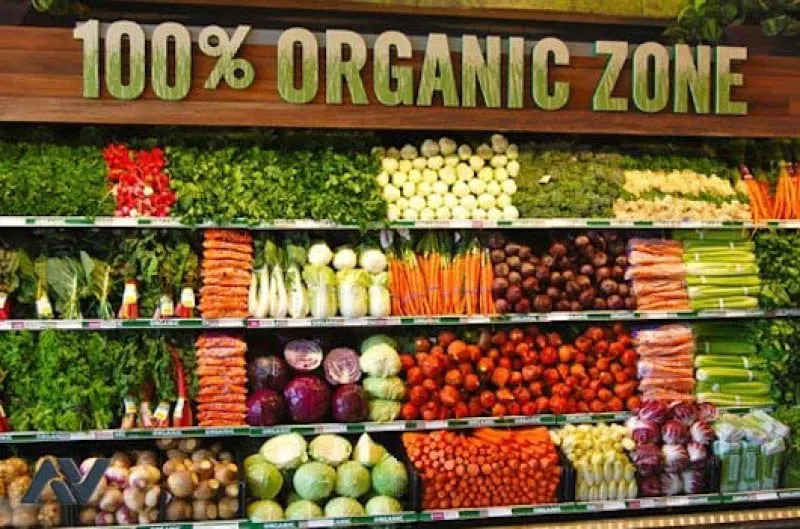‘Organic agriculture is not a synonym for safe food’: United Nation’s FAO challenges misleading marketing and public misconceptions
‘Organic agriculture is not a synonym for safe food’: United Nation’s FAO challenges misleading marketing and public misconceptions


Organic food is often seen by consumers as healthy, tasty and environmentally friendly, but the organic food certification is not necessarily a synonym for safe food. Organic refers to a product that has been produced in accordance with certain standards throughout the production, handling, processing and marketing stages; it does not refer to the characteristics and properties of the finished product.
In fact, “organic” certification actually indicates the implementation of standards which aim at a different set of benefits: better incomes for small-scale farmers and increased food security, environmental benefits such as improved soil and water quality and biodiversity preservation, and improved animal welfare.
In March 2021, the FAO Regional Office for Asia and the Pacific published a booklet entitled “Organic foods – Are they safer?”. This concise resource discusses the social and economic aspects of organic agriculture and its relationship to food safety, and it helps acquaint readers with agroecology, an approach that favours the use of natural processes and limits the use of external inputs.
Organic labels rely on rules that prohibit or limit the use of synthetic fertilizers and agrochemicals, which is an attractive feature for consumers, but pesticides that are physiologically produced by plants are still used in organic agriculture, and at high dosages they also may have negative effects on human health. Including food safety measures in the existing organic certification schemes and raising awareness that organic agriculture is not a synonym for safe food are important steps to promote wise food choices. Examples of how organic agriculture can be implemented while guaranteeing food safety are included in the booklet, and links are readily available for those who wish to have greater knowledge of organic agriculture and agroecology.
Read the original post

 | Videos | More... |

Video: Nuclear energy will destroy us? Global warming is an existential threat? Chemicals are massacring bees? Donate to the Green Industrial Complex!
 | Bees & Pollinators | More... |

GLP podcast: Science journalism is a mess. Here’s how to fix it

Mosquito massacre: Can we safely tackle malaria with a CRISPR gene drive?

Are we facing an ‘Insect Apocalypse’ caused by ‘intensive, industrial’ farming and agricultural chemicals? The media say yes; Science says ‘no’
 | Infographics | More... |

Infographic: Global regulatory and health research agencies on whether glyphosate causes cancer
 | GMO FAQs | More... |

Why is there controversy over GMO foods but not GMO drugs?

How are GMOs labeled around the world?

How does genetic engineering differ from conventional breeding?
 | GLP Profiles | More... |

Alex Jones: Right-wing conspiracy theorist stokes fear of GMOs, pesticides to sell ‘health supplements’




 Trust issues: What happens when therapists use ChatGPT?
Trust issues: What happens when therapists use ChatGPT? Fighting deforestation with CO2: Biotechnology breakthrough creates sustainable palm oil alternative for cosmetics
Fighting deforestation with CO2: Biotechnology breakthrough creates sustainable palm oil alternative for cosmetics Viewpoint: Video — Big Solar is gobbling up productive agricultural land and hurting farmers yet providing little energy or sustainabilty gains
Viewpoint: Video — Big Solar is gobbling up productive agricultural land and hurting farmers yet providing little energy or sustainabilty gains California, Washington, Oregon forge immunization alliance to safeguard vaccine access against federal undermining
California, Washington, Oregon forge immunization alliance to safeguard vaccine access against federal undermining Viewpoint — Fact checking MAHA mythmakers: How wellness influencers and RFK, Jr. undermine American science and health
Viewpoint — Fact checking MAHA mythmakers: How wellness influencers and RFK, Jr. undermine American science and health 30-year-old tomato line shows genetic resistance to devastating virus
30-year-old tomato line shows genetic resistance to devastating virus The free-range chicken dilemma: Better for birds, but with substantial costs
The free-range chicken dilemma: Better for birds, but with substantial costs ‘You have to treat the brain first’: Rethinking chronic pain with Sanjay Gupta
‘You have to treat the brain first’: Rethinking chronic pain with Sanjay Gupta
